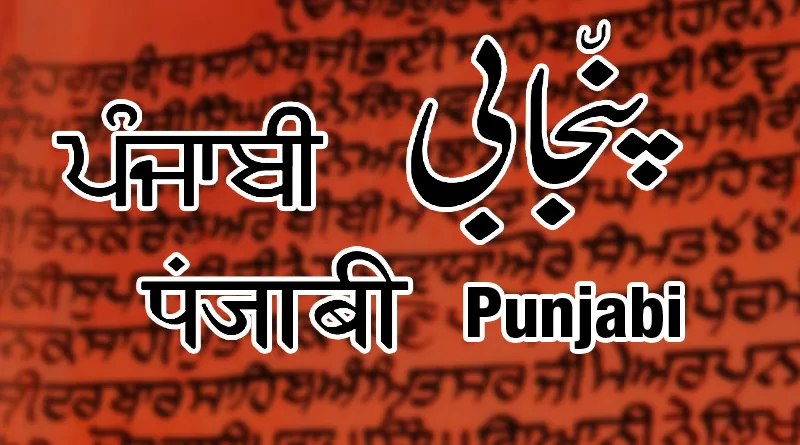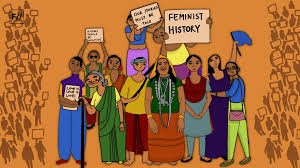Tariq Mahmood Awan
Punjabi is the most sublime language because it is our forefather’s language. It should be the only merit of evaluating languages. Cultural evaluation is always subjective, not objective. Then, why do we not consider Punjabi a language of art, literature, ethics and manners? It is nothing but the degenerated consciousness of Punjabis. Significantly, Punjabi women hate speaking Punjabi, which is why kids hate to talk in Punjabi. Then, Punjabi is not a language of the syllabus, which is another reason for the decline of Punjabi. It is unfortunate to see that Punjabi is not being written now. However, it is talked about, but that is too limited to villages and towns. The fashionable populations no longer speak or write Punjabi. Then, it is even so unfortunate that they consider Punjabi a linguistic taboo.
The Punjabi language is the treasure of Punjabis. It is the most incredible gift given to us by our forefathers. Accordingly, reading the literature to learn the language is even more significant. Therefore, Punjabi literature, especially poetry, should be read to realize our great traditions’ language and culture. Consequently, It is critical to understand and promote Punjabi Sufi poetry for Punjabi language and comprehension for several reasons. Punjabi Sufi poetry is a valuable source of cultural and religious heritage, as it reflects the diversity, history, and identity of the Punjabi people and their region. Punjabi Sufi poetry is a powerful medium of spiritual and moral education, as it teaches the principles, practices, and values of Sufism, such as love, devotion, tolerance, and harmony, with the employment of purist Punjabi diction.
Furthermore, Punjabi Sufi poetry is a creative expression of linguistic and literary excellence, as it showcases the beauty, richness, and versatility of the Punjabi language and its poetic forms, such as the kafi, the shalok, and the baran maha. Punjab Sufi poetry is a rich and diverse tradition of poetic expression that reflects the mystical teachings and practices of various Sufi orders in the region.
However, it is significant to know the literary criticism of Punjabi poetry. It is essential to understand the historical and cultural context of the poets and their works, such as the political, religious, and social influences that shaped their worldview and style. Then, the literary and linguistic features of the poetry, such as the use of metaphors, symbols, imagery, rhyme, rhythm, and dialect, are also vital. Furthermore, it is crucial to know the theological and philosophical themes of the poetry, such as the nature of God, love, devotion, ethics, and mysticism. The poetry’s reception and impact on the contemporary and later audience, such as how the poetry was transmitted, interpreted, preserved, and appreciated, will make the readers and listeners know more about the harmony and richness of the Punjabi language.
Please visit the website of republicpolicy.com and subscribe it for premier content
Punjab Sufi poetry has many poetic merits and demerits that can be evaluated from different perspectives. The poetry is rich in cultural and religious diversity, as it draws from various sources of inspiration, such as Islamic, Hindu, Sikh, and folk traditions. The poetry is expressive and emotive, as it uses vivid and colourful language, imagery, and metaphors to convey the feelings and experiences of the poets and their beloveds.
The poetry is innovative and influential, as it introduces new forms, styles, and themes that shape the Punjabi literary tradition, such as the kafi, the romantic legends, and the concept of heroes and spiritualists.
Then, the poetry is obscure and ambiguous, as it employs complex and esoteric symbols, references, and allusions that the typical reader or listener may need help understanding. It is also controversial and challenging, as it questions and criticizes the established norms, values, and authorities of society and religion, such as the Shariah, the caste system, and the clergy. Furthermore, poetry is vulnerable and endangered, as it faces the threats of distortion, loss, or censorship due to political, religious, or linguistic factors that affect its transmission and preservation.
Despite the merits and demerits of Punjabi Sufi poetry, one thing is sure it will create interest in the Punjab language and the culture of Punjab. Language is the door to culture and civilization. Therefore powerful and influential people should speak Punjabi so commoners may follow suit. Punjabis should not compromise on preserving and growing Punjabi language and culture.
Pl, subscribe the YouTube channel of republicpolicy.com
















